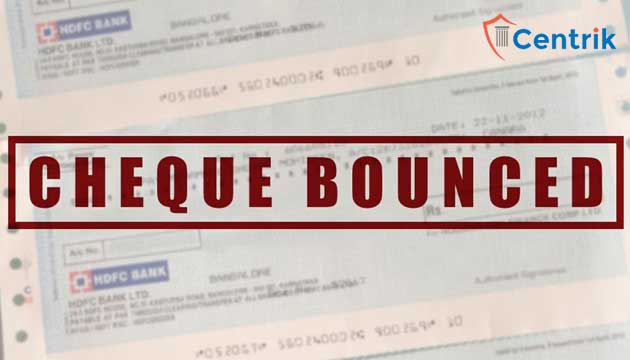
Status as on- 17/06/2023
Sec 138 of the Negotiable Instrument Act deals with the offence of cheque dishonour cases. Cheque is an instrument widely used as a payment method in business transactions. A cheque is said to be dishonoured when the payee presents the cheque to the concerned bank and the cheque is returned unpaid by the bank. The offence of cheque bounce is punishable u/s 138 with a fine which can extend to twice the cheque amount or imprisonment for a term not exceeding 2 years.
Reasons for Cheque Bounce:
There can be several reasons for cheque dishonour such as insufficiency of funds, expired validity of cheque, overwriting, damaged cheque, signature mismatch, and mismatch of amounts and digits. Whenever a cheque is dishonoured the drawee bank issues a cheque return memo to the payee specifying the reasons for the dishonour.
Procedure Followed under Sec 138 Of NI Act:
The first step to be followed is issuing a cheque bounce notice in writing within 30 days from the date of intimation by the bank specifying the reason for the dishonour. After issuing the cheque bounce notice, the drawer within 15 days from the receipt of the notice is required to pay the cheque amount, if the drawer fails to do so then legal action can be initiated by the payee within 30 days under sec 138 after the expiration of 15 days from the date of receipt of the notice.
Powers Of The Court in The Matters Under Sec 138 After Taking Cognizance:
The courts in the matters of 138 can issue a “bailable” or a “non-bailable warrant” for the non-appearance of the party, the court may also issue an “arrest warrant”, or “attachment of property”.
In case the accused is an NRI the court may issue a “lookout circular”.
Look out circular is a circular letter used by Indian authorities in India to check whether a travelling person is wanted by the police at international airports etc. The court may also order for confiscation of the passport of the accused trying to abscond. If the accused is an NRI, the court can issue the summons, arrest warrant, etc. via international courier at the accused’s address.
In criminal cases, the accused is required to appear before the court in person to rescue the Criminal Procedure Code can take advantage of the provisions enshrined under Section 205 read with 317 which empowers the magistrate to dispense the personal attendance of the accused. However, these exemptions are not absolute in nature and are subject to certain conditions, which may be imposed by the magistrate to ensure that the prosecution proceedings are not prejudiced. This helps to reduce the hardships faced by the accused.
Jurisdiction of Courts under Section 138:
The NIA is silent upon the appropriate jurisdiction with respect to filing a criminal complaint under section 138. The question is of the jurisdiction of a criminal complaint for the offence committed under sec 138. The same is seen in the view of the Criminal Procedure Code, 1973. Sec 178 of the CRPC suggests that if there is uncertainty as to where, among different localities, the offence would have been committed the trial can be held in a court having jurisdiction over any of those localities. Reading sec 138 NIA with sec 178(d) of CRPC the jurisdiction of courts for dishonour can be at the place where the cheque has been drawn or where the cheque has been presented or at the place where the bank which returned the cheque is situated or the place where the notice has been served.
Remedies:
The person aggrieved can issue a notice under section 138 NIA. Sec 143A also provides for a remedy of interim compensation in favour of the complainant in addition if the facts attract the penal consequences under IPC the Complainant may also file a complaint under Section 420 for cheating under the IPC.
New Developments In The Matters of 138 Regarding Exemption From Personal Appearance:
In its recent order, the High Court of Delhi has allowed hybrid hearings in all the matters of 138 in Delhi without prior request for the same. A hybrid hearing is where in a given case one party may join the proceedings through virtual mode while the other is present physically in the court. This order of hybrid hearing will help reduce hardships faced by NRIs in cases of 138. We hope the other courts will soon allow hybrid hearings in matters of 138 this will help the accused residing in India as well as the accused non residing in India.
NOTE: All the other statutory provisions are also applicable to NRIs.
Disclaimer: The above article is based on the personal interpretation of the related orders and laws. The readers are expected to take expert opinions before relying upon the article. For more information, please contact us




 join For Updates
join For Updates